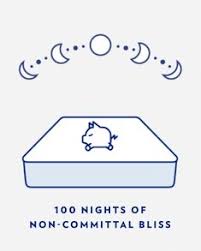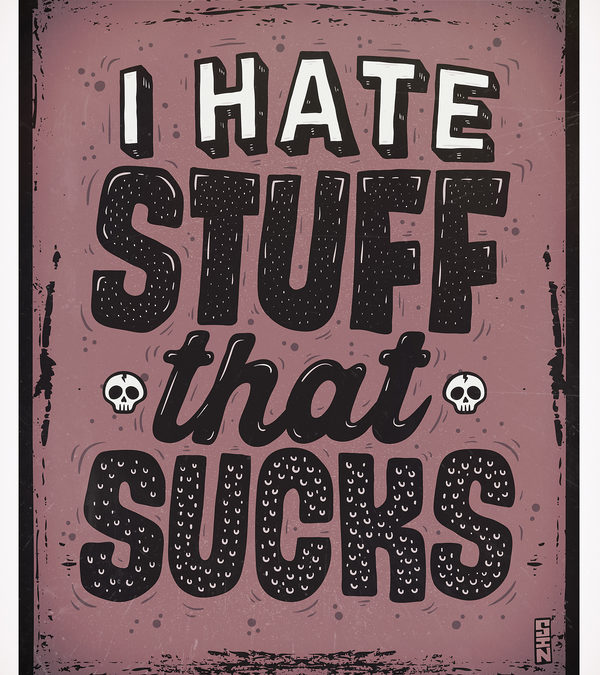
The story of a company that grew from zero to $200 million in three years.
As markets go, it would be difficult to identify an industry much more mundane and uninspiring than mattresses. It is dominated by two companies Tempur-Sealy  and Serta Simmons Holdings. This duopoly boasts margins as high as 50%. The buying process, uses confusing jargon like indentation force deflection or IFD. – Which to those in the know measures mattress firmness – The verbiage helps inferior-to-second-hand-car-salespeople to confuse shoppers into spending an arm and a leg, for a product they literally tested for 10 seconds in an embarrassingly awkward lie down and feign sleep test. Then the customer has to load the mattress onto the roof of their car or into a van hired at great personal expense. Get it home and wrestle up the stairs this beast of fabric and springs, that now behaves as the love child of a champion sumo wrestler and a spineless walrus would.
and Serta Simmons Holdings. This duopoly boasts margins as high as 50%. The buying process, uses confusing jargon like indentation force deflection or IFD. – Which to those in the know measures mattress firmness – The verbiage helps inferior-to-second-hand-car-salespeople to confuse shoppers into spending an arm and a leg, for a product they literally tested for 10 seconds in an embarrassingly awkward lie down and feign sleep test. Then the customer has to load the mattress onto the roof of their car or into a van hired at great personal expense. Get it home and wrestle up the stairs this beast of fabric and springs, that now behaves as the love child of a champion sumo wrestler and a spineless walrus would.
We’ve all been here. Buying a mattress sucks! Philip Krim, CEO and founder of Casper, recognised this and set off on a quest to eliminate what sucks in sleep.
On April 22, 2014, Casper.com, the company Krim and his partners started went live. The team were hoping to sell one or two beds on day-one and perhaps a dozen in the first week. As the company’s tiny staff sat watching the computer screen they became spellbound, the impossible was happening. People were actually buying online, untested and unseen mattresses.
The mattress industry sucked so badly that the “bar was incredibly low” says Krim. But none of this is rocket science. So, the question remains, why had no one cracked it before Casper? Here’s the staggering realisation, most companies focus on the product features, rather than innovate and eliminate what sucks. Casper gained advantage not by focusing on a new product innovation but rather by innovating around what sucked most in the mattress industry. This delivered meaningful benefits to customers and the company took-off immediately.
 Customers started to champion Casper on social media. The company’s innovations included delivering a king-size mattress in a box the size of a small refrigerator. This was intriguing and interest enough to light up Instagram. The experience of unwrapping and watching the mattress grow in front of your eyes like a just-add-water-toy added further to the novelty factor. YouTube was on fire with videos of excited customers unwrapping and testing out their miracle grow Casper mattresses. The mattress-in-a-box innovation also made delivery economically profitable. Pure sucking genius.
Customers started to champion Casper on social media. The company’s innovations included delivering a king-size mattress in a box the size of a small refrigerator. This was intriguing and interest enough to light up Instagram. The experience of unwrapping and watching the mattress grow in front of your eyes like a just-add-water-toy added further to the novelty factor. YouTube was on fire with videos of excited customers unwrapping and testing out their miracle grow Casper mattresses. The mattress-in-a-box innovation also made delivery economically profitable. Pure sucking genius.
Casper didn’t stop there. Krim wanted to eliminate the thing that sucked most in the mattress industry – testing a mattress for only a few seconds in-store before forking out a small fortune to buy it – Casper’s innovation hoovered up this sucker by allowing customers to buy online and test the bed risk-free for 100 days in their own home. Not satisfied, no problem Casper will collect the mattress at no cost to you and provide a full refund. The returned bed gets given to a charity. Nice, nothing sucks here and customers flocked to reward Casper with their hard cash and customer love.
“We were shocked that people woke up, read an article, and said, ‘Ah, f$%k it, I’ll buy a bed, Sure as shit, it was like, order, order, order, order,” Krim explains in a  Fortune Magazine interview. Casper “sold an amazing total of 40 beds—its entire inventory for the first six weeks—on their first trading day.” Within the first month of sales Casper hit its twelve-month target of $1.8 million in 60-days. That’s the power of fixing what sucks in your customers lives, you are going to get rewarded! Sucking remarkable stuff!
Fortune Magazine interview. Casper “sold an amazing total of 40 beds—its entire inventory for the first six weeks—on their first trading day.” Within the first month of sales Casper hit its twelve-month target of $1.8 million in 60-days. That’s the power of fixing what sucks in your customers lives, you are going to get rewarded! Sucking remarkable stuff!
Casper’s unexpected success, however, created an inadvertent new “That sucks!” problem for the company. With orders flooding in suddenly Casper were unable to find a manufacturer who could produce mattresses fast enough to meet customer demand. For a customer, having to wait a long time for your mattress, sucked! Especially if you were moving to New York as a fresh eyed millennial taking on the Big Apple and didn’t have a mattress to begin with. To make sure their customers were not left sleeping on the hard floor while waiting for Casper’s backlog of orders to reach normality – which let’s face it would have double sucked – the founders had the empathy to say screw our short-term profits and they conjured an innovative solution buying air-mattresses from Amazon and sending them to customers as a stop-gap gift until the real Casper mattress arrived. “We thought Amazon would shut us down because we ordered so many, and they might think we were reselling them,” said Jeff Chapin one of the co-founders.
What Casper discovered is that customers do not mind delays if companies respect them enough to take the time to explain the situation. What sucks, is being left in the dark! Again, not rocket science, but how many companies do you know that suck at communicating with their customers when things go wrong?
Once customers knew what was happening they were like, “hey okay”. So, Casper’s team went into overdrive spending every waking moment live-chatting, emailing, and talking on the phone with customers. They even coded a button on the company’s website that said, “Chat with a founder.” The founders have directly engaged through chat with over 50% of their customer base. By communicating to their customers in person Casper was able to turn a disastrous four-week delivery delay into something inspirational. Customers were engaged and became part of the quest to disrupt the mattress industry and make it better. That was cool. Casper, says Aaron Shapiro, CEO of Huge, a digital agency, “solved user problems in a completely effortless way,” Solving what sucks for customers, is “rapidly becoming how business is done in the modern economy.”
Casper has big aspirations for shaping the future. CEO Philip Krim has designs to make the company the “Nike of sleep.” In an interview Krim explained that “athletic gear wasn’t much of an apparel category until Nike turned sneakers into the core of a lifestyle. Lululemon did the same thing for “athleisure,” now a $78 billion market by some estimates. “We want to create sleep as a category,” Krim says. “That’s a really big opportunity.”
So, what else sucks in sleep? Insomnia sucks! Clever Casper launched a hotline to help, just call 888-890-2040, it’s free, it’s funny and friendly. Press 1 for sounds of mating whales. Press 2 to listen to a business conference call guaranteed to bore you back to sleep, if you can stop laughing. Press 3 to enjoy 1990s Family Matters star Jaleel White singing a lullaby. It’s clever stuff and beneficial too. A recent study ‘Why sleep matters – the economic costs of insufficient sleep’, conducted by researchers at RAND Europe shows that up to $680 billion is lost each year across five OECD countries due to insufficient sleep.
What can we learn from this story?
If you want to encourage your children (or anyone, even yourself for that matter) to think about their successful future, what is the best question to ask? Finding the right question is important, because it has the potential to shape lives and fortunes in significant ways. So, no pressure. What do you think is the most important question?
My parents asked me: “What would you like to be when you grow up?” My answer would be anything from a fireman, cowboy, pilot, vet. I became a professional speaker. Now my father, a chartered accountant, continues to ask me the same question believing I do not have a proper job! However, whilst well-meaning, his good question is largely irrelevant today. Because, many of the jobs considered important now will not even exist for humans in the next decade or two so massive will be the changes across the knowledge worker ranks as AI and automation sweeps through.
The reality is that machine learning, artificial intelligence and robotics are going to disrupt careers and create new jobs in manners we struggle to imagine today. Vishal Maini the editor of Machine Learning for Humans says; “Artificial Intelligence will shape our future more powerfully than any other innovation this century. Anyone who does not understand it will soon find themselves feeling left behind, waking up in a world full of technology that feels more and more like magic.”
So, with traditional roles expected to vanish as quickly as crushed ice lemonade on a scorching summers day, the better question – it’s possibly the most important question anyone who is expecting to be employed over the next two decades, should be asking – is this: “That sucks, is there a better way?”
What Sucks?
Nights of darkness suck! So, Thomas Edison gave us incandescent lightbulbs. Germs suck! So, Fleming gave us penicillin. Walking, when birds fly, sucks! So, the Wright brothers gave us wings. Automobiles for only the very wealthiest sucks! So, Ford gave us the production line and the liveable wage. Inequality sucks! So, Martin Luther King and Nelson Mandela gave us equal rights. Cancer sucks! So, Marie Curie gave us radiology and X-ray machines.
The great women and men who shaped history began with the question: “This sucks, can it be made better?” When passion, commitment and energy is expended towards solutions that tackle what sucks most in the world, innovations emerge which no one could have imagined.
That is why this seemingly simple question is so excitingly powerful. The answers to “This sucks, can it be made better?” have propelled fortunes, crafted successful careers and disrupted industries.
It’s not rocket science, it’s simple stuff and yet amazingly very few people or organisations are good at sucking up things that suck. The remarkable ones excel.
Steve Jobs famously never commissioned customer research. He believed customers rarely know what they want, especially when looking to the future. Rather, Steve Jobs sought opportunities where his beautifully designed innovations could eliminate what sucked most for his customers. In doing so he created “dents in the universe.” Not being able to listen to every track of your much-loved music collection seamlessly on one device sucked! So, Jobs gave us the iPod. Lugging around a camera, Walkman and mobile phone sucked! So, Jobs did the ‘impossible’ and combined all three into the remarkably magical iPad and iPhone.
Here, hopefully is your source of inspiration. The 21st century is full of “mega-sucks” and tons more “mini-sucks” just waiting for innovative intrapreneurs and intrepid entrepreneurs to strike out and find new ground. If you want to secure that next promotion, bonus or discover a killer business app giving you unicorn status; then do what the great women and history have done. Starting with the question: what sucks in the lives of my customers and people important to me? Finding the solution will open the doors to incredible opportunities and deliver personal and societal rewards.
Sucking is hard
 No one expected Casper to be a success, let alone the runaway success it has been. Krim explained to CNBS how “not one investor believed they could succeed. They heard no “dozens and dozens and dozens of times.” Including: ‘You’re going to make selling mattresses cool? Like okay, yeah, good luck with that!’”
No one expected Casper to be a success, let alone the runaway success it has been. Krim explained to CNBS how “not one investor believed they could succeed. They heard no “dozens and dozens and dozens of times.” Including: ‘You’re going to make selling mattresses cool? Like okay, yeah, good luck with that!’”
No one counted on Casper cracking the recipe for success. It just goes to show why sucking up, hoovering away what sucks in business is so powerful. Take note because if they can do it with mattresses you can do it in your industry.
Today Krim has sound advice for anyone wanting to tackle things that suck!: “The best ideas come when no one else, or very few people, see things the way that you see it. That’s what creates the opportunity.”
Tackling what sucks is not easy. Things in any industry suck because it’s hard work to make them better. Things suck because no one has cracked the solution or cared enough to try. It requires doing things differently, going against the grain of conventional wisdom. Things that sucks can often be so entrenched within the norms of an industry and the way things get done, that they have become accepted as part of the furniture and are not even questioned. This may make things that suck doubly hard to identify. There may even be vested interested in your industry to keep what sucks because it creates barriers to innovation and competitors entering. It’s also so much easier to just copy what is already out there and get away with mediocracy, than to do the hard work of eliminating what sucks.
The companies who achieve remarkable things however, hoover up what sucks, one suck at a time. It’s fun, it’s motivational and attracts the best talent. Casper “is focused on the benefit, not the feature,” says Mike Duda, founder and managing partner of Bullish, a tech accelerator and investor in Casper. “People want to buy into something better. They’re buying into a set of values.”
focused on the benefit, not the feature,” says Mike Duda, founder and managing partner of Bullish, a tech accelerator and investor in Casper. “People want to buy into something better. They’re buying into a set of values.”
If your team is not asking the question “what sucks in our industry/business?” chances are someone else will, and then they, not you, will be doing the disrupting, getting the promotion, bonuses and getting ahead.
What is exciting is how a new breed of businesses are asking this question and disrupting markets with unprecedented speed. The results are remarkable: “Recently, Casper’s success enticed Target to float a $1 billion buyout offer, which the company quickly declined. “We didn’t get that far with it,” says CEO and cofounder Philip Krim “We’re a three-year-old company, and we think we can be a lot bigger than this.” In the end Target opted to invest in Casper, an opportunity to good to miss.
Sucking to Succeed
This is why “That sucks! Can we make it better?” is the most important question to ask. Identifying and eliminating what sucks not only offers up the most amazing business opportunities but it will also future proof you from robotic replacement. AI, robotics and smart machines will never master – well not for the foreseeable future – the skills and values needed to answer and address this powerful question. These skills are inherently human and include: empathy to care that it sucks; curiosity to look at things differently; creativity to innovate different workable solutions; intuition to sense when and how to make adjustments; inspiration to encourage others to follow and collaboration. These values are what make humans such an awesome species. Not only will mastering the art of hoovering up what sucks; future proof you and your team from robotic replacement; but, you will also discover that your next promotion, bonus or killer business ‘unicorn’ idea is staring you directly in the face.
To suck up, succeed and achieve remarkable things, insert formula below and prepare for lift-off:
This <INSERT YOUR INDUSTRY’S SUCKS HERE> Sucks! How Can We Make It Better? <YOUR ANSWER HERE>


